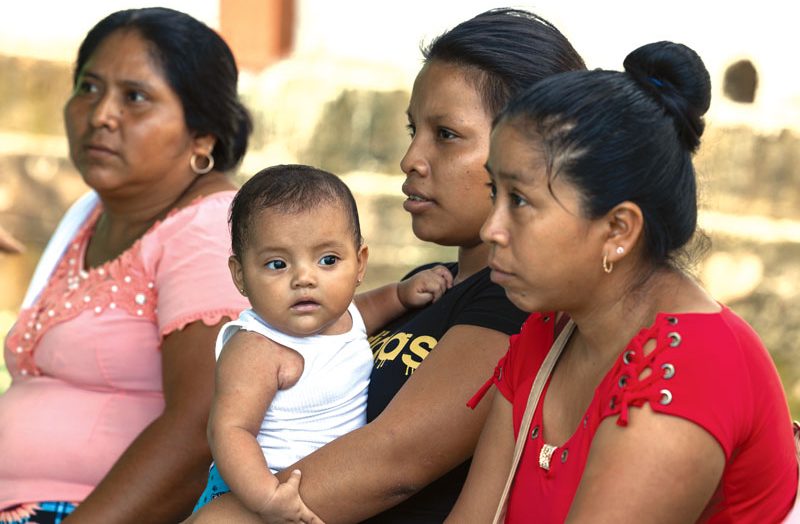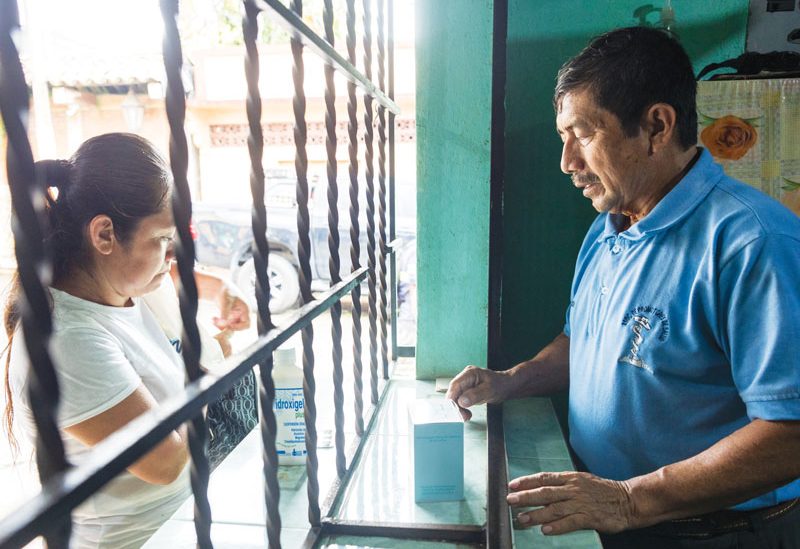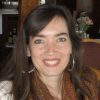Serving in a diocesan health ministry project, a Maryknoll sister treats patients and trains health promoters in Guatemala’s poor communities.
Growing up, Mary Lou Daoust always knew that she would become a doctor. The Detroit native never imagined that one day she would serve some of Guatemala’s poorest communities.
The road to mission, for Sister Daoust, started with her medical residency at the University of Miami hospitals. “I became interested in working with patients of other cultures, and in mission as a long-term commitment,” she says. “And so, I found Maryknoll.”
Assigned to Guatemala, she worked alongside Maryknoll Sister Jane Buellesbach, also a physician. When the sisters’ team moved in 1983 to the department (state) of San Marcos, she and Sister Buellesbach were the only doctors in the town and municipality of Catarina. “We spent the first year visiting rural communities and seeing patients,” Sister Daoust recounts. “At the end of the afternoon, we would meet with the community to hear their needs.”
Most maladies were preventable, such as bacterial infections and ailments due to parasites and malnutrition. Having already run a successful health promoters program in another part of Guatemala, the sisters got to work.

“We began training people from Catarina and the next town,” says Sister Daoust, who works in health ministry for the Diocese of San Marcos. Word spread quickly. “It just took off.”
Candidates attend six basic courses comprised of four days of classes taught every two months. Daylong continuing education workshops are offered twice a year. For example, last September’s workshop focused on metabolic syndrome, a cluster of conditions that increase the risk of chronic diseases.
Romeo Esteban and Carlos Romeo Orozco took part in the first groups of health promoters. “What the sisters came to teach us made a huge change in the communities, starting with our own families,” Orozco says.
“The first course is all about basic hygiene,” Sister Daoust says. “Carlos Romeo spent a year convincing his wife to boil the water. She finally said to him, ‘You were right. The kids don’t get sick with diarrhea anymore.’”
At that time, the promoters relate, people would go to the fields to relieve themselves, contaminating crops and groundwater. If they walked barefoot, parasite larvae entered the soles of their feet. “We ran a program to build latrines,” Sister Daoust says.
“A big part of health work in places like San Marcos is prevention,” Sister Daoust continues. In the communities, the sisters had noted high rates of respiratory illnesses due to the inhalation of smoke from wood-burning stoves. They also observed drastic deforestation taking place as villagers cut down trees for firewood.
The sisters began to partner with a Guatemalan company that builds ecological stoves using 50% less firewood. A chimney diverts the smoke to minimize inhalation. Over the past three years, Sister Daoust and the promoters have placed 906 ecological stoves in homes throughout San Marcos. The health ministry project pays for half the cost of each stove, and the family pays for the other half.
Although conditions in San Marcos have improved over these four decades, the need for health care is still dire. After 60 years, almost all spent in Guatemala, in 2023 Sister Buellesbach returned to the States, but Sister Daoust remains, based at the Catarina clinic on the hot and humid coast. In the chilly heights of the altiplano, a second clinic is run as part of the diocesan health ministry by Doctor Mario Fuentes.

The clinic includes a dispensary which Esteban and Orozco keep open seven days a week, from 8 a.m. to 5 p.m. A markup of 10 percent provides their salaries. Medication prices are significantly lower than in pharmacies, and the dispensary is better stocked than government facilities.
“On Mondays, we see patients in town,” Sister Daoust says. “Nowadays, diabetes is the most common problem. Every week we get three or four new cases. Some patients are not even 30 years old.”
Another concern, she says, is detecting and treating Helicobacter pylori (H. pylori) bacteria, which has been linked to gastric cancer. “Guatemala has one of the highest rates of gastric cancer in the world,” the physician notes.
While Sister Daoust sees patients, on the clinic’s second floor, Esteban and another promoter check and record glucose levels for diabetics already under treatment. “If it is good, we give them the same medications. If there is a change, we send them downstairs to the doctor,” Esteban says.
Sister Daoust spends the rest of the week reaching patients at sites run by the program’s 100 active volunteers. “We have promoters in most of the towns in San Marcos,” the missioner says. “We have 40 places on the coast and almost the same in the altiplano.”
One of them is a settlement of 30 shacks on a rubber plantation. Workers there are paid 60 quetzales a day (less than $8). Their housing is made of corrugated metal and planks of wood. “These people live in one room, one after another in rows,” Sister Daoust says. “They were born there and they’ll die there.”
Like his father, Manuel Vázquez was born and raised on the plantation. The work is demanding, he says, and the shift quota is 500 trees. Starting before dawn, harvesters slash the bark of each rubber tree. Sap, called latex, drips into a bucket affixed below. “When it’s a double shift, we tap 1,000 trees,” Vázquez says. “We get up at 2 in the morning.”
Click on the arrows to view the slideshow below:
Yet after the workday ends, his volunteer duty begins. He and his uncle, Isaías, both trained by the sisters, typically provide about 500 consults over the course of six months. “People come from all around,” Vázquez says, proud to serve in this important and respected role.
Promoters with the most experience become supervisors. There are 10 supervisors on the coast and 10 in the altiplano, Sister Daoust says. Serious cases are referred to the doctors.
“We give each promoter a set of 20 essential medicines to start with,” she explains. These include cold and flu remedies, acetaminophen, antacids, antiparasitic medications and creams for skin problems such as athlete’s foot, which is common in this climate. Promoters replenish supplies through the dispensary.
Darío López has served as a promoter for 29 years in the village of Nicá. In a simple, two-room structure next to the church, Sister Daoust treats patients while López distributes medications and carefully records information in a notebook.
López, a subsistence farmer, has little formal education. The hardest learning curve for him was record keeping. “The program keeps strict accounting,” he says. “But we learn. There are workshops and courses.”
Patients, however, are not numbers. “Sister Jane used to say, ‘There are people who come for medicine, but there are also people who just need to talk,’” he recalls. “She told us, ‘People need to be heard. You must learn to listen to them.’”
A mother of three children, wearing a traditional Indigenous skirt, waits for a consult. “I’ve always come here,” she says. “Here in the clinic, they treat us well.”
Being a promoter, López reflects, is a calling. “I didn’t understand at first,” he admits. He was 19 when he signed up, and during the training he wondered why passages from the New Testament were read.
Now, he says, he understands: “Serving the people is serving God. We are contributing to God’s Reign.”
View the Maryknoll Sisters’ 2021 video about Sisters Jane Buellesbach and Mary Lou Daoust:

